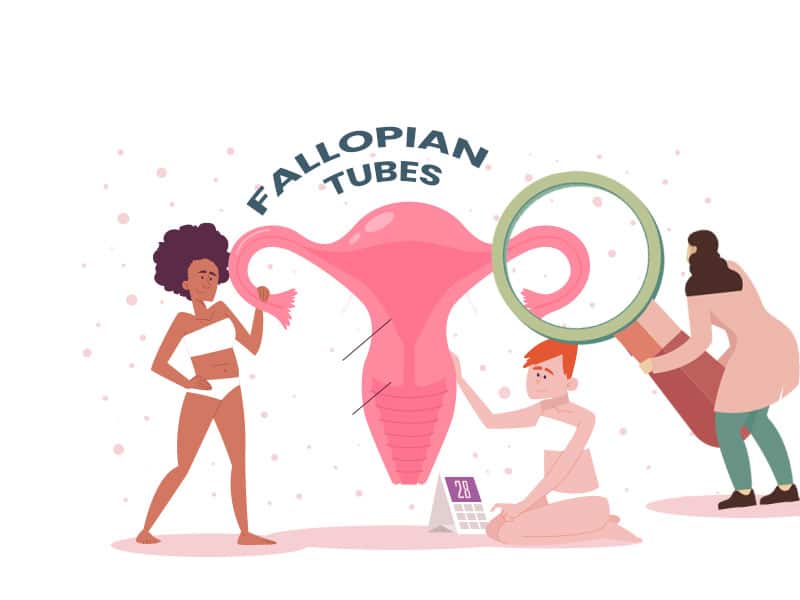The choice to be a surrogate mother is both challenging and rewarding. It’s challenging because of the mental, emotional, and physical demands the process puts on the surrogate mother’s mind and body. It’s rewarding because, at the end of the process, the surrogate mother will have given an otherwise childless person or couple the great gift of a baby to raise. Yes, there might even be some financial rewards, though they often pale in comparison to the gift-giving aspect.
The reality about surrogacy is the population of potential surrogate mothers is quite limited for a couple of reasons. First, there just aren’t that many women who are willing to participate for a variety of reasons. Second, and most importantly, the requirements placed on prospective surrogate mothers are quite stringent.
One very common question we get from prospects is, “can I be a surrogate if my tubes are tied?” It’s an interesting question because it usually comes from women who have actually gone through the tubal ligation process or had their tubes tied. That would leave one to assume those particular women felt that their childbearing years were behind them.
However, some women do decide later in life that they might be willing to participate in the surrogacy process. That makes the aforementioned question very relevant. So, we have an answer.

UNDERSTANDING THE DIFFERENCE BETWEEN GESTATIONAL SURROGACY AND NATURAL SURROGACY
If you really want to be a surrogate after tubal ligation or having your tubes tied, it would help you to understand the difference between gestational and traditional surrogacy.
With gestational surrogacy, the surrogate female’s biology plays no role in the process. The egg and sperm cells will be provided by the intended parents or donors. Thereafter, conception occurs in a fertility clinic setting through the In Vitro Fertilization (IVF) process. The IVF process is an assisted reproductive technology (ART) in which the egg is fertilized first, and then placed inside the uterus of the surrogate mother. It simply bypasses the ovaries and fallopian tubes making those body organs irrelevant.
Natural surrogacy does require participation from the surrogate mother’s biology. In fact, it is her egg cell that will be fertilized by the intended parent’s sperm or the sperm from a donor. Conception occurs through the process of insemination using intrauterine insemination (IUI), making the surrogate mother the actual biological mother of the child.
The choices intended parents make between these two processes depends on a variety of considerations and personal preference.

MOVING FORWARD
Well, we have good news on this front. Assuming you are serious about serving as a surrogate mother dispute having had your tubes tied, you’ll be happy to learn that you do still qualify as a prospective surrogate mother if you clear the other qualifications. That would include qualifications like meeting age limits, having had at least one prior pregnancy, and mental/emotional/physical fitness among others.
While you certainly wouldn’t be able to go through a natural surrogacy process without untying your tubes, you could still participate in the gestational surrogacy process. As we mentioned above, your female biology would not really be a necessary part of the process. As long as the physical health of your uterus could pass muster, you would be a viable candidate.
Here’s the best part. Some clinicians who work in fertility clinics actually believe a woman is a slightly better candidate to be a surrogate after having their tubes tied. Why? The reality is a woman who has had her tubes tied does not run the risk of a parallel natural pregnancy. This is particularly important for a woman who is still sexually active. Eliminating the risk of a parallel pregnancy makes for one less concern during the surrogacy process.
It’s worth noting that many times certain measures are usually taken to prevent potential parallel pregnancies during the natural surrogacy process. Clinicians will use options such as Essure or Filshie clips to prevent naturally occurring pregnancies during surrogacy. These kinds of options are not available as part of the gestational surrogacy process. That makes a woman with tied tubes preferable because it eliminates some potential issues.
MOVING FORWARD
We understand that you view a positive answer to this question as a good thing, and it is a good thing. However, we want to stress that you still have to meet other requirements before you would qualify as a surrogate mother. There are in fact a lot of other requirements you would have to clear, including the ones we mentioned above.
If you clear all of the requirements and get the green light, you can move forward with the intended parents. What we want to offer you is this. It’s a grand gesture to serve as a surrogate. Giving a man, woman, or couple the gift of a baby is a special thing. You are to be commended and should be very proud of your decision.
If you have any further questions or concerns about surrogacy, we would be happy to hear from you.
